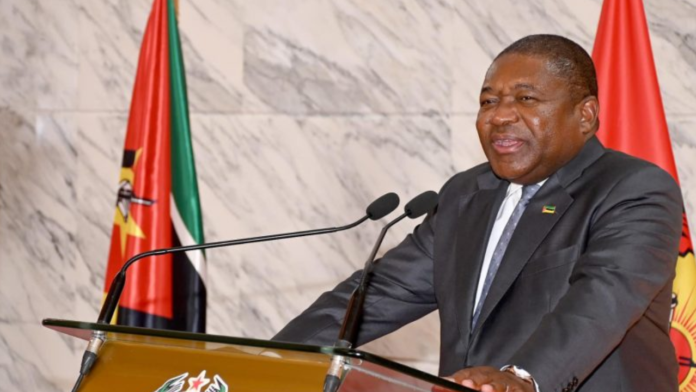Experts have faulted the controversial proposal of President Filipe Nyusi to declare a state of emergency across the nation to curb the escalating violence and widespread destruction following the nationwide election.
Mozambique, a Portuguese-speaking country located in southeastern Africa, is currently grappling with a severe security crisis that has seen escalating violence and widespread destruction.
In response to the alarming situation, President Filipe Nyusi has made a controversial proposal to declare a state of emergency across the nation.
While this move aims to curb violence, experts and critics warn that it may have unintended consequences, further intensifying the crisis rather than resolving it.
Nyusi’s government has been under increasing pressure to address the mounting violence attributed to armed opposition groups.
These groups, including a small party, Optimistic Party for the Development of Mozambique (Podemos), have been accused of launching violent attacks on civilian infrastructure, government facilities, and military personnel.
The chaos has led to the displacement of thousands of people, further destabilising an already fragile nation.
The proposal for a state of emergency is a drastic measure that would grant the government sweeping powers to restrict civil liberties and deploy additional security forces to restore order.
However, the decision has been met with widespread skepticism. Many fear that the move could exacerbate the existing violence, emboldening opposition forces rather than suppressing them.
“Declaring a state of emergency will only give further impetus to the opposition to escalate their violent activities,” said António dos Santos, a political analyst based in Maputo. “Rather than addressing the root causes of the conflict, it risks escalating the violence and undermining efforts toward national reconciliation.”
They contend that the violence in Mozambique stems from political, economic, and social grievances that cannot be addressed by simply suspending civil liberties and deploying more troops.
Experts emphasise that the true solution lies in a comprehensive strategy focused on dialogue, reconciliation, and the strengthening of state institutions.
While the government insists that the state of emergency will restore stability, the broader public remains unconvinced.



